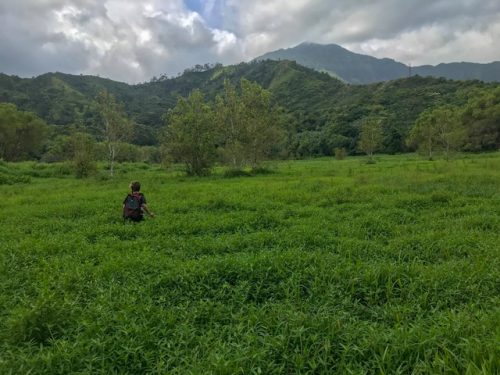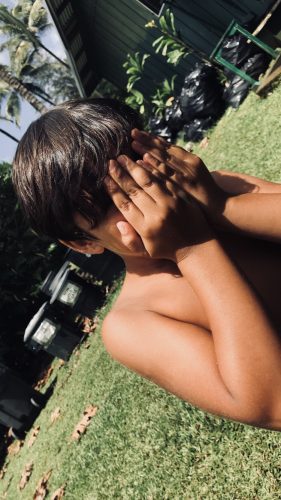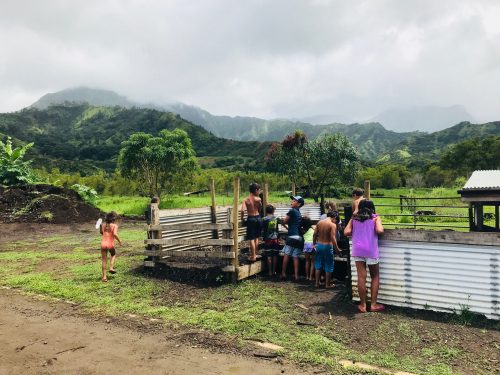

When you were a child do you remember the overwhelming sense of fear you felt when a teacher threatened to call your parents?
At Waipā the threat is real and personal.
On the first day of camp, five weeks ago, my third graders were being kolohe (naughty) and our Kumu sat them down in a circle and said, “I know each and everyone of your parents personally”. She then turned to the first child in the circle and said, “I knew your father from high school, we got in lots of mischief together”. Then turned to the next child, “I was there when your mother decided to marry your father”, and then turned towards the next and stated, “I was there the day you were born”. She continued with these statements for all nine keiki (children). It was in this moment when I began to realize how strong and powerful the community of Waipā is.
While working at Waipa I have been given the incredible opportunity to experience and observe a vibrant community. Waipā exemplifies the phrase it takes a village to raise a child. This community has been challenged by haole/tourists who believe that they have the right to go anywhere and do anything, while regularly undermining Hawaiian values and trying to profit off it. It has been ravaged by natural disasters and a changing environment, that’s largely caused by anthropogenic factors. Drugs have infiltrated the communities and torn families apart. To top it off, this is a native community that is constantly being oppressed by the government and is still feeling the everlasting effects of colonization. This community has been through it all, and it still flourishes.

One thing that holds this community together through hard times is the sense of place and belonging that community members have. Everyone here knows the land, how to work it, and the thousands of years of history it has. In fact, the term for land in Hawaiian, ‘āina, stands for that which feeds us. It is this connection between ‘āina and people and sense of place that I want to take back to my community. Kaui’i is the most beautiful place I have ever been, but I know it is not mine to call home. I do not belong here and that is okay. Fortunately, I have land and a home that I love, and now, wish to return to. Hauani Kay Trask stated in From a Native Daughter: Colonialism and Sovereignty in Hawai’i that the bond between ‘āina and people on Hawai’i, and all indigenous communities, “is cultural, and it can be understood only culturally. But because the West has lost any cultural understanding of the bond between people and land, it is not possible to know this connection through western culture”. These words inspire me to go home, to my community, and work towards cultivating a bond between land and people. I am firm believer that if western culture leaned into this concept then there would be less environmental issues.
On this note, I ask people who are considering visiting Kaua’i how would you feel about 1.3 million people visiting your community and destroying the land and values that is its foundation? Furthermore, as the world becomes more transient, it is important to ask yourself not where can I go, but rather where do I belong? Do you being here help perpetuate oppressive systems?
Community is precious and not everyone is born with a strong one. That doesn’t mean you can’t work towards creating one, you just have to know where it is appropriate for you to be. Waipā has helped inform me of my own sense of place and community, and for that I will forever be grateful. Mahalo.

